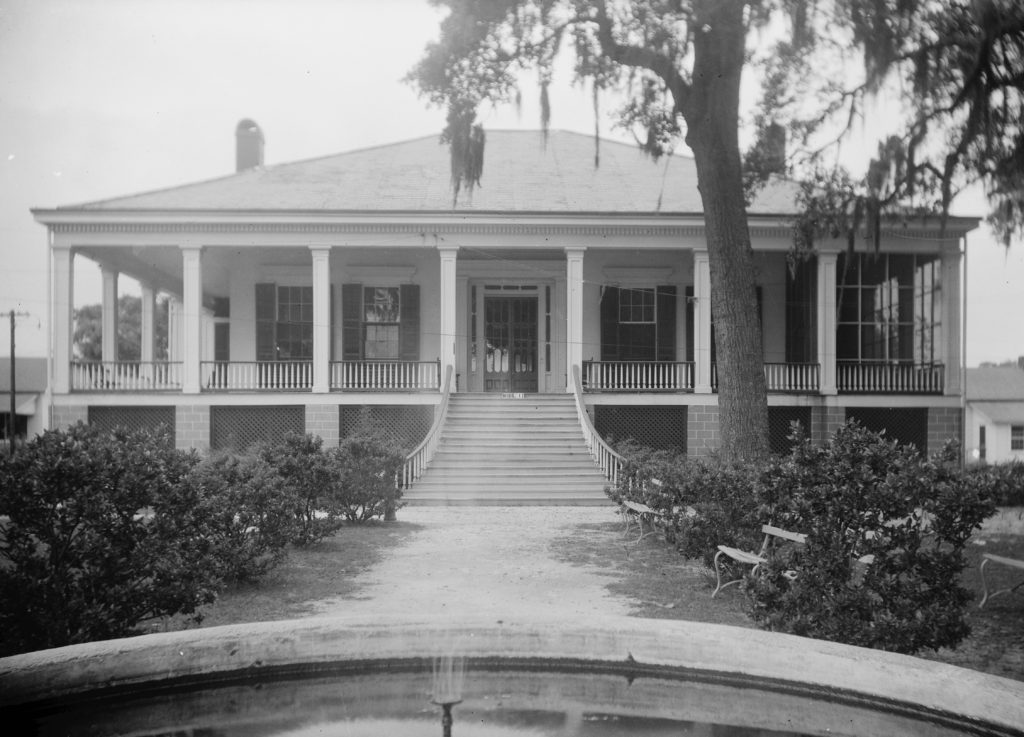The following is an excerpt from a longer history of the Jefferson Davis Soldier Home by Lisa C. Foster and Susannah J. Ural, Ph.D., which was originally published in Mississippi History Now, an online publication of the Mississippi Historical Society. The full article can be read via this link.

Constructed from 1848 until 1852, the future Confederate home was originally named “Orange Grove” by its first occupant, James Brown of Madison County, Mississippi. The property was later renamed “Beauvoir” by Sarah Ellis Dorsey when she purchased the property in the 1870s. Dorsey sold the property to Jefferson Davis in 1879. The first and only President of the Confederate States of America wrote his famous memoir, The Rise and Fall of the Confederate Government, at Beauvoir and spent the last twelve years of his life at this beautiful, coastal location. After Davis died in 1889, his widow, Varina, and daughter, Winnie, had difficulty maintaining the property as their resources dwindled. After securing attractive writing contracts from the New York World, the women moved to New York City for Varina’s health. Following the hurricane of 1893, which severely damaged Beauvoir and many coastal communities, the preservation of the property became the cause of Mary Hunter Southworth Kimbrough of Greenwood, Mississippi, who spent summers with her husband, Judge Allan McCaskill Kimbrough, at Ashton Hall, located near Beauvoir in Biloxi. A friend of the Davises, Mary Kimbrough worked to raise funds to restore the property as “the Mount Vernon of the Confederacy.” While appreciative, Varina Davis worried that the cost of maintaining the home would always be sizable, and her health remained such that doctors did not want her living on the southern coast. Davis suggested in late 1894 that she would be willing to sell the home, and it was here that the women (it is not clear which one) launched the idea of turning Beauvoir into Mississippi’s home for aging Confederate veterans and their wives and widows.
Over the next eight years, the Mississippi UDC worked to raise the $10,000 that Davis requested for the home. This sum would provide her with adequate funds to support herself and her daughter, and it was a bargain for the state. (A hotel developer had recently offered Davis $90,000 for the property, but she refused). The UDC implemented numerous fundraising plans while battling a reluctant state legislature. Most lawmakers in the 1890s were convinced that Mississippi’s 26,728 Confederate veterans and 3,830 widows preferred to remain within their own communities and to receive pensions directly from the state.
. . . .
In its prime, 250 men and women called Beauvoir home. The facility bustled with skits, readings, trips to veteran reunions, weddings of residents, and numerous social visits by local residents and dignitaries. As would be expected for a home with aging residents, Beauvoir also conducted a host of funerals. While some residents or their families requested that the bodies of their loved ones be sent home for burial, over 700 veterans, wives, and widows were buried at the Beauvoir Cemetery located behind the home and barracks. On February 19, 1957, the home’s last two residents, widows Mollie Lavenia Bailey of Rosedale and Mollie Cottle of Rolling Fork, were moved to another retirement home. At that time, the state of Mississippi officially closed the Jefferson Davis Soldier Home – Beauvoir and returned the control and maintenance of the property to the SCV.
Lisa C. Foster is pursuing her master’s degree in the Department of History at the University of Southern Mississippi. Her master’s thesis analyzes Mississippi’s state and local policies for helping poor veterans and their families during and after the American Civil War.
Susannah J. Ural, Ph.D. is professor of history at the University of Southern Mississippi and director of the Beauvoir Veteran Project.
